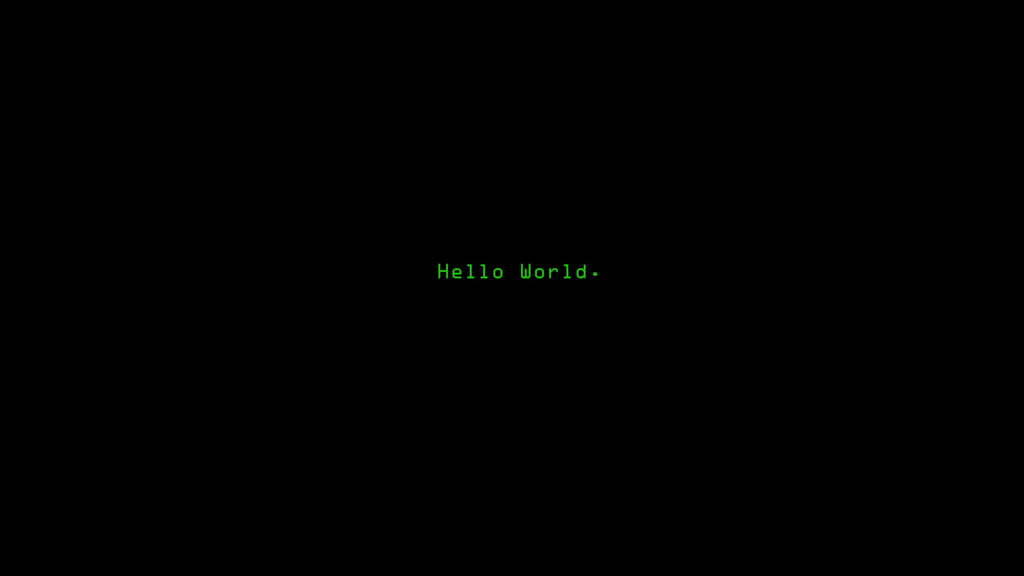Ubuntu is just getting worse and worse. I was pretty happy running Ubuntu server for years after moving from Gentoo; I jag lost interest in spending time taking care for that server and wanted something easy.
I went to Debian half a year ago and it’s been great. Should’ve done it earlier.
I never understood why people run Ubuntu on servers. It’s madness. Ubuntu is a fork of unstable Debian packages. You don’t want unstable on your server!
Ubuntu on Desktop I can understand. Back in the days the Debian release was really long so much software was a tad outdated after a couple of years. But Debian had a much faster release cycle now, and had pretty much incorporated all the good stuff from Ubuntu and left the bad behind.
Ubuntu is a fork of unstable Debian packages. You don’t want unstable on your server!
Unstable does not mean crashes all the time. What makes them unstable on Debian is they can change and break API completely. But guess what, Ubuntu freezes the versions for their release and maintains their own security patches, completely mitigating that issue.
There are other reasons you might not want to use Ubuntu on a server but package version stability is not one of them.
Ubuntu is a fork of unstable Debian packages
And where do you think debian stable packages come from exactly ?..
it’s basicaly the exact same thing. In both case :
- At some point freeze unstable (snapshot unstable in case of ubuntu),
- fix bugs found in the frozen set of packages,
- release as stable.
Ubuntu on Desktop I can understand.
Not anymore. A whole extra, unneeded, proprietary, locked-in package system. Ads in the default install.
There’s Mint, Pop!, and plenty of other options that actually respect the user.
Definitely. But back in the day it was good for desktops. Ubuntu has never been good for servers.
It was awesome back when during the install you could just select “LAMP”, and a full stack web server suite would be automatically set up and configured correctly out of the box. But those days are long gone.
Mhm I have Ubuntu LTS on my server because my VPS provider provided me with it. :/
You don’t want unstable on your server!
“But they are maintaiend for 5 years!”
I gave up Ubuntu when they switched Firefox to a snap
It’s astonishing.
Fedora introduced a whole new distro where you can’t install anything with dnf anymore and people love it. People love using flatpaks instead (yes I know of all the shortcomings, but you can always choose another install method for that broken package). And ubuntu users just hate ubuntu for what they do. The difference may also be that fedora gives a choice to the user and does not directly force it
There are reasons why Flatpaks are better, both technical and social.
On the technical side, Snaps add to boot up time, as all of them are mounted on boot, which can make the machine several seconds slower to boot in my experience. I don’t need Thunderbird before I’ve logged into my account, yet Thunderbird is already mounted and partially decompressed the moment I see a login prompt.
On the social side, you can easily host your own Flatpak server. Don’t trust flathub? Set up your own website! Users can add your repo with one command and you’re good. Users even get a prompt on package conflicts so they can pick which repo to use. On Snap, there are no alternative stores. The backend is hardcoded to use Canonical’s infrastructure, the alternative repos need to be installed as Snaps, and Oracle charges a hefty sum to those wanting to maintain a repo.
I wouldn’t be very upset if Canonical migrated to snaps had they implemented their system in a reasonably open design. There are advantages to Snaps over APT packages, for sure, and even though I’d rather see them use Flatpaks instead, a fully integrated Snap environment seems to be working just as well.
Canonical did a lot of things right. Mir was a good idea, for instance. AppArmor is much better than the SELinux tooling that Red Hat ships. They have some excellent dev tools for things like k8s (running on Snap, ironically). Plus, they have one of the best server distros out there.
Mir is not a good example of distro engineering, because it’s an extreme case of NIH syndrome. Unlike what it is today, the original Mir was an alternative to Wayland.
The story started when Canonical decided that X isn’t good enough and they needed an alternative. They chose Wayland first, exciting the entire Linux desktop community. But then they dropped Wayland in favor of the new in-house Mir project, citing several drawbacks to Wayland. The Wayland community responded with several articles explaining why Canonicals concerns were unwarranted. But in typical Canonical style, they simply neglected all the replies and stuck with Mir.
This irked the entire Linux community who promised to promote Wayland and not support Mir at all. This continued for a while until Canonical realized their mistake late, like always. Then they repurposed Mir as a Wayland compositor.
Now this is a repeating story. You see this with Flatpak vs Snap, Incus vs LXD, etc. The amount of high handedness we see from Canonical is incredible.
FYI my understanding is that Incus is forked from LXD, because nobody trusts Canonical any longer. I don’t think LXD itself is them doing the thing that makes them untrustworthy.
You might be referring to something they have done since then, apologies if I misunderstood. Wouldn’t be surprised if they tried to make it a Snap or force Snaps into it.
LXD was under the Linux containers project earlier. After the Canonical takeover of LXD, the following changes were made:
- The repo privileges of the original LXD developers were revoked. Those developers are driving the development of Incus now.
- LXD’s license was changed to AGPL+CLA
The first point means that Incus is the true successor of the original LXD. The current LXD is a jealously guarded pet project of Canonical in the same manner as Snap and Mir.
As for the second point, I’m usually a proponent of AGPL. But CLA corrupts it so much that it’s more harmful than with a permissive license. The real intention of this license change is to prevent Incus from incorporating changes from LXD (since the copyleft license of LXD code is incompatible with the permissive license of Incus). Meanwhile LXD continues to incorporate changes from Incus, although the Incus developers haven’t signed any CLA. This move by Canonical is in very bad faith, IMO.
So yes - I consider LXD to be untrustworthy. But that doesn’t cover the old LXD code, its developers or its community. Those transformed fully into the Incus project the same way OpenOffice was forked into LibreOffice. And I don’t trust the LXD name anymore in the same way nobody trusted the OpenOffice name after the fork (before it was donated to the Apache foundation).
Oh, yep, that’s shady and bad behavior. Thank you.
@babara@lemmy.ml
The difference with Fedora Atomic, which I think you refer to, is that it’s totally open. For example, people started using the OCI containers differently than Fedora intended, which resulted in uBlue and stuff like Bazzite.Also, no one forces you to use Flatpak. You can still use Distrobox and use Pacman/ APT/ DNF/ whatever you prefer and export your apps that way. It’s just that Flatpak “won” and doesn’t have many drawbacks, and is very convenient. I mostly like them.
And, most importantly, Fedora is the fronteer of innovation.
There were many projects and ideas that failed, but many more succedded (Wayland, image based distros, etc.), and Project Atomic is just one more “testing ground” that is well thought out imo. Therefore people are expecting to “test out” new generation Linux stuff, it’s just part of Fedora. If you don’t like that, use Debian instead.I can recommend you to give Fedora Atomic a chance, it’s an extremely nice family of distros (e.g. Bluefin/ Aurora, Bazzite, etc.)!
Edit: one more thing is that Fedora is, in contrast to Ubuntu, not controlled by a company. RedHat doesn’t have nearly as much influence as people think, it’s mainly community driven, and therefore choices aren’t (in theory) influenced by $$$
And, most importantly, Fedora is the fronteer of innovation.
What I find impressive about this is that they turn this into a stable product. Early Fedora Core was more of an experimental distribution but those times are long gone (IIRC around Fedora 19).
Well there is immutable, which you probably refer to with Fedoras new distro, and then there is Canonical pushing their shitty snap format, and kinda non-sideloading. Can’t wait for the day when apt only ever allows to install snap packages.
Fedora Silverblue is in an entirely different ball game. You can’t use dnf because it’s an immutable image based system where you can’t make direct changes to the Root system without making use of the rpm-ostree & VCS mechanisms. You’re making a conscious choice by using Fedora Silverblue, and the pros out way the cons for most people making that choice.
In contrast Fedora Workstation allows you to use dnf just as normal because it’s not an immutable image based system.
Ubuntu doesn’t make use of any such system so their reliance on containerized user-space apps isn’t a technical one.It is absolutely a different situation if it is opt-in. If Ubuntu made Snaps opt-in, people might not like them but it’d be a minor critique instead of fleeing the distro.
People love using flatpaks instead (yes I know of all the shortcomings, but you can always choose another install method for that broken package).
Not on Ubuntu nor Fedora, but yes: If a “larger” package breaks on update and there is no fix available and I use that application on a pretty much daily basis, then I remove it and install the Flatpak variant.
Flatpaks are slower, do not work super well with Wayland (especially scaling, some applications have GIANT text, some have 5 pixels large text, but fortunately I was able to circumvent those issues for most applications I use via Flatpak), and you need to run another system for updates and updates are friggin slow.
There is also this monstrosity ...
It is not fault-proof and it throws an error if there no older drivers, but this prevents accumulation of outdated Nvidia driver packages (at one point I had nearly 30 different variants installed, resulting of a couple of gigabytes of unused drivers that are “updated” every time I ran
flatpak update).flatpak-update () { LATEST_NVIDIA=$(flatpak list | grep "GL.nvidia" | cut -f2 | cut -d '.' -f5) flatpak update flatpak remove --unused --delete-data flatpak list | grep org.freedesktop.Platform.GL32.nvidia- | cut -f2 | grep -v "$LATEST_NVIDIA" | xargs -o flatpak uninstall flatpak repair flatpak update }
On the other hand, the applications provided via Flatpak just work.
And messing with 32 bits multilib dependency hell for Steam or installing pretty much half of Kde just for Kdenlive simply isn’t something I want.
I think they got the nvidia driver accumulation thing straightened out. On Fedora 40, I had it automatically remove a bunch of older versions and now it only lists the 64 and 32 bit versions I expect it to.
$ flatpak list | grep nvidia nvidia-550-76 org.freedesktop.Platform.GL.nvidia-550-76 1.4 system nvidia-550-76 org.freedesktop.Platform.GL32.nvidia-550-76 1.4 systemEdit: looks like it’s fixed by this.
Someone being enraged about snap on behalf of Windows users was certainly a take I didn’t know I needed.
I could barely make out the straw man hiding between the ads. The author is working hard for them clicks!
Baah. KBIN just ate my reply.
Point form since I forgot to save to clipboard first.
Tried mint - booted to black screen
Tried ubuntu - got silly crashes like in the post trying to install stuff. It also wanted me to sign up for some sort of support package with 5 free devices to get updates or something. Also, trackpad scrolling was uncontrollable. Would scroll up half a screen or more as I lifted my fingers off.
Tried fedora - only 100% and 200% zoom option, and no right click.Managed to fix the fedora issues with some command line found on Google and a gnome customising addon.
n00b here, just playing. Can’t migrate fully as I need VBA and Playit Live etc.
I do wonder what kind of gardware you have… And if it’s maybe defective?
I took a similar path but eventually ended up on openSUSE for my desktop. I’ve been pretty happy with it. I can’t think of a single issue that I wasn’t able to quickly resolve. I even got CUDA installed and working in under an hour.
Idk, I probably haven’t used Debian derivatives long enough, but isn’t installing random .deb-s somewhat of a bad practice? I mean, repos exist for a reason (ignoring the fact they usually have like 3 packages in the official repos)
But even if it is, it shouldn’t prevent installing released debs you find for example on GitHub repositories.
But it seems to be a bit better when using the terminal
A lot of software wont be distributed with a PPA to add.
Additionally, debs are useful for offline installations, with apt you’re able to recursively download a package and all of it’s dependencies as deb files, then transfer those over to the offline machine and install in bulk.
That being said I’ve never had great luck with the software center, it’s always felt broken. I’ll typically just
dpkg -I <pkg>.Some things we would want to install aren’t in the official repos. Downloading the deb file is a solution to that for newer users.
You should try MX, it’s Debian based, and they have their own repo full of .deb, up to date, never break
Disappoint is a sober word here. I am actually pissed at the casual arrogance of Ubuntu and its parent company Canonical.
I’m actually baffled that this would come as a surprise to people. Canonical has been like this for a long time and you’d have to have blinders on to not see it. They are hell-bent on doing things their way and ignoring the wider Linux community and even their users. That is, of course, their prerogative and to some degree I even welcome their attempts at differentiating their distro from others. As a user though you should be aware of their history and the apparent direction they’re heading.
I just wish they’d stop stalling and went all-in on snaps already, since that’s pretty obviously where they’re headed.
deleted by creator
The sheer audacity and arrogance of giving me something for free and not caring* about me.
* “Not caring” presumably means “not doing something about my pet issue”, but I’m not going to take the clickbait.
It’s about not being able to install .deb packages through the installation GUI.
The whole snap issue is hardly a pet peeve. Let alone in an LTS release.
Ubuntu user here. You can/could install .deb packages with the UI?
TIL
as far as I remember I could always double click the .deb and the GUI would let me install it, pretty handy. Aaand it stopped working some time ago. I’m not using ubuntu outside of work and there’s not much system package installing in work environments so I’m out of touch now, but it was handy at the time.
The discord snap is basically unusable for me so that’s the only way I can have discord installed. I’ll probably switch away from kubuntu next time if it inherited this problem.
There’s the flatpak too, that’s the version I use alongside webcord in arch.
Does that have auto updates? It’s kind of annoying to download debs every week.
I’m not super well versed, I’m a Linux casual.
you can go into the command line and write “flatpak upgrade”, but every time I open the discord app it apparently downloads something, idk if it’s self updating correctly or not.
giving me something for free
What are you talking about? It is not even “for free”, they get a lot value from the community.
They’re nothing without the users, it’s not that they would be making it if nobody uses it anyways. Users used to love them, they trusted them, they went on spreading their system, reported issues, created tutorials, flavors, videos, tools, and so on, they helped Cannonical become what it is now.
I don’t think they’re giving us anything “for free.”
They’re getting “exposure”?
The software is broken in an obvious way, even though it used to work and they could just roll it back for the release.
They are actively trying to harm the community to somehow “force” users into snaps.
Does this mean you have to use apt-get to get the deb version again? Or is there an even more complicated command? I’m wondering what happens for the other Ubuntu flavors. I’m usually running Kubuntu.
Even apt is deliberately broken:
“[If] You use ‘sudo apt install chromium’, you get a Snap package of Chromium instead of Debian”
This was where I rage quit. Who in the hell thought it was a good idea?
Same here, it’s the reason why I kicked Ubuntu off my laptop. They removed any way to choose and made it such a pain to get around the Snap bullshit. I’m on Linux because I want to choose what I do with my system.
Who in the hell thought it was a good idea?
Marc Shuttleworth
🤮
Seriously? Wow. That moves the whole thing into asshole territory. I’m glad I went with a distro that prioritizes not being shitty.
Why does this break apt? Just because, I assume (I am using Debian btw), it installs a placeholder deb-package which, while running the postinst script, installs chromium via snap commands?
Canonical even patched apt a bit so it prefers to install snaps first.
It is about installing .deb that you manually downloaded from somewhere. You can’t install them by double clicking on them, you have to install from command line.
Give a shot for Fedora!
Then…I guess stop using it? What’s your issue exactly? You have a plethora of alternatives.
How dare people complain about something they don’t like!
That aside, the article is shitty lol
Is this snap stuff something the Ubuntu variants avoid I.e Ubuntu studio and Ubuntu budgie?
Does Linux Mint count as an “Ubuntu variant”?
No. It based on Ubuntu but without all the bullshit. .deb ist standard and flatpak is also built in. Whenever both are available, you get a choice right from the software manager. Mint is very much its own thing and great if you want to ditch Ubuntu.
Well, it’s complicated, isn’t it?
Ubuntu is built on Debian’s skeleton. RHEL is built on Fedora. Many more examples.
Linux Mint is based on Ubuntu, but in a much deeper and more connected way than Ubuntu is based on Debian. It even shares many of the same software repositories.
The next closer level is how Xubuntu, Lubuntu, and Kubuntu are just slight variations of Ubuntu. People like to call these “flavours”.
Finally, you get to the closest layer—the thousands of people who have taken a stock Ubuntu installation and swapped out one or two components to meet their requirements. We don’t even think of these as distros in their own right.
It’s a continuous spectrum, and any labels we try to apply will be pretty much guaranteed to have fuzzy edges.
@Rustmilian classic Mint is basically Ubuntu without snap. Then there’s Mint Debian edition which is built on Debian (sort of insurance if Ubuntu goes Red Hat way).

























